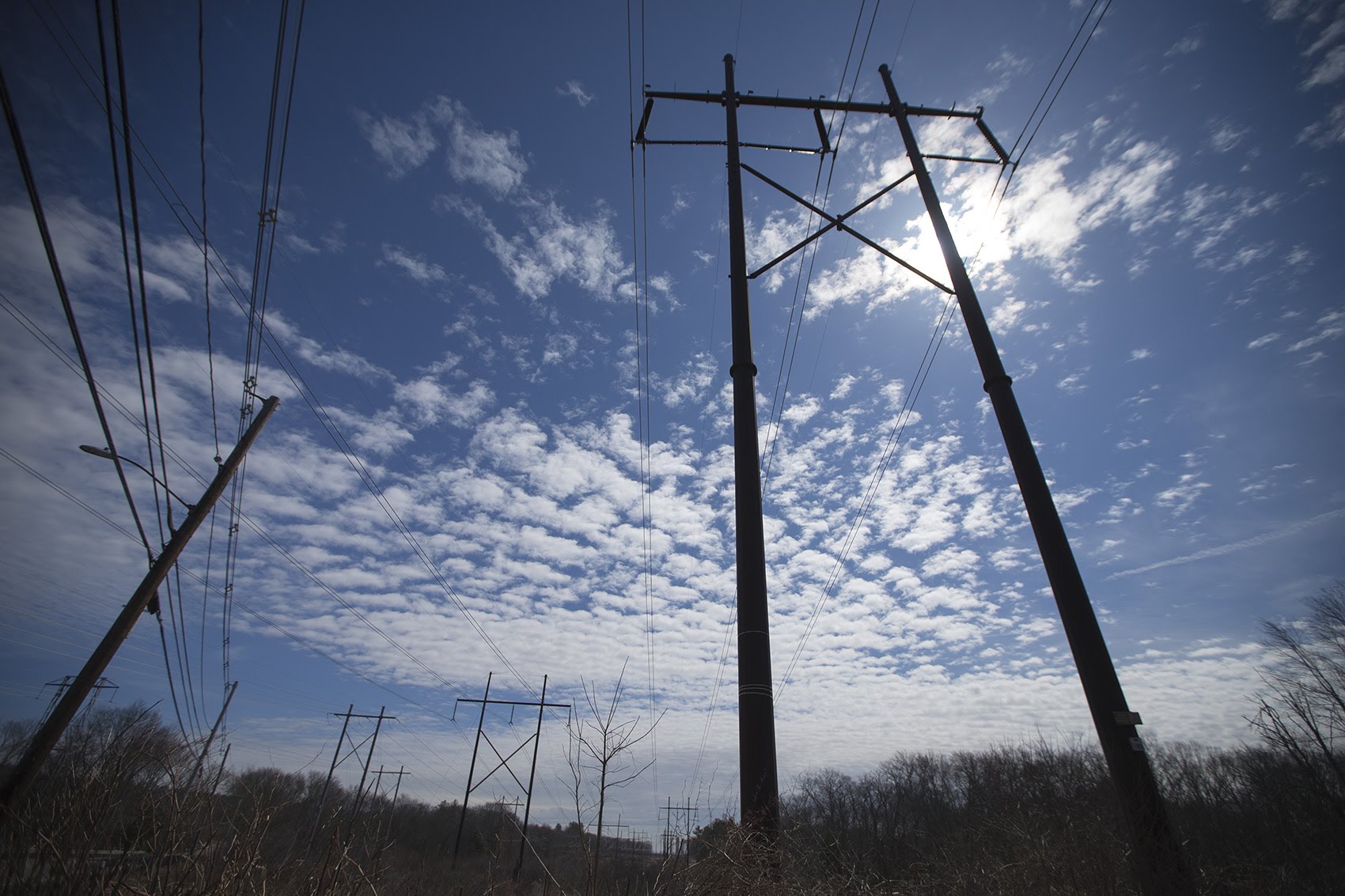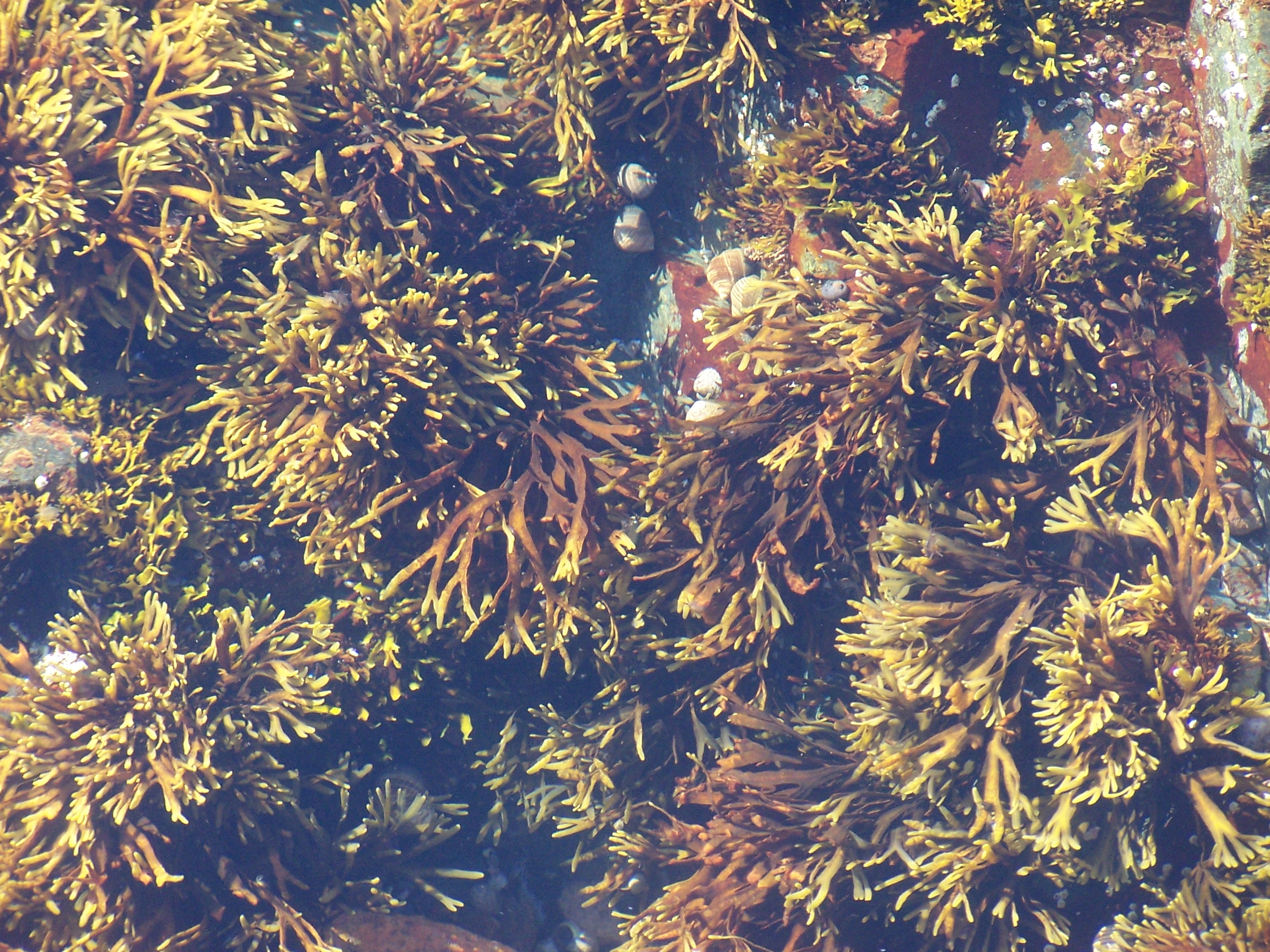Episode 116: Gang Prevention Efforts Stretch From El Salvador To Boston; Climate Change Questions For Candidates

This week on NEXT: we learn about two organizations that are working thousands of miles apart to keep young people out of gangs. Plus, a youth leadership academy in Hartford, Connecticut, is focusing efforts on reducing gun violence. Did you hear the election is coming up? We explore how gubernatorial candidates from around the region are discussing energy and the environment. Then we head north to Canada to hear from dairy farmers about their reaction to the new trade pact. Finally, we take to the seas: fishermen explain why they need better life jackets, and we learn about two growing industries along Maine’s coast.
It’s NEXT.
Gang Prevention from El Salvador to Boston
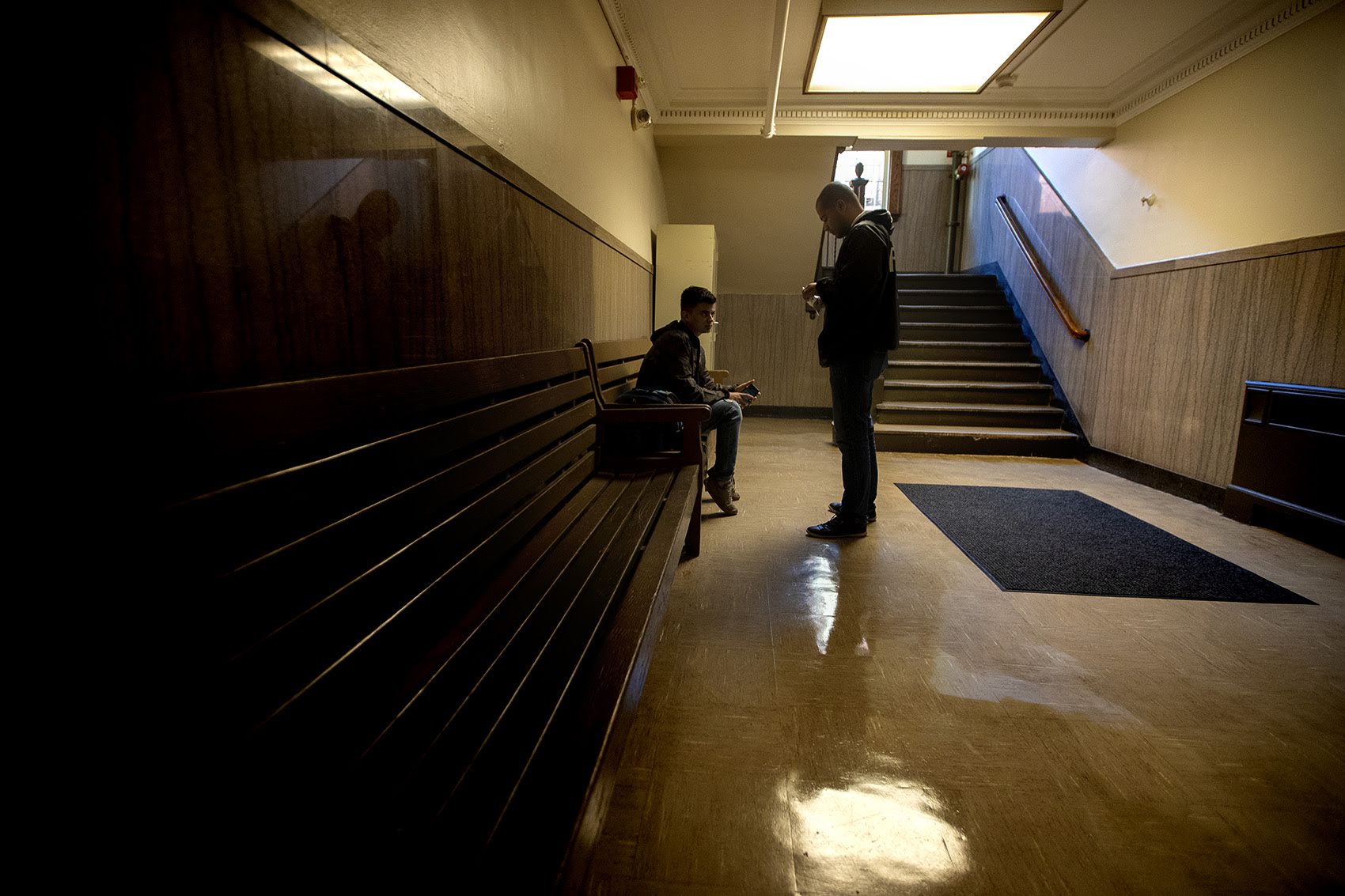
Diego Pizarro, a front line youth worker at Roca, stops to talk with a young man in East Boston District Court. Photo by Jesse Costa for WBUR
El Salvador is one of the world’s most violent countries and a place that has strong ties to international gangs that exert their influence in New England. While the Trump administration focuses on cracking down on gangs like MS-13, and resorts to name-calling gang members as “animals” and young minors from Central America “wolves in sheep’s clothing,” others are trying a different approach: showing young people a glimpse of their futures beyond the gangs.
WBUR’s Shannon Dooling reports on two organizations working thousands of miles apart with a similar goal: keeping young people out of gangs.
*The audio from this story has been updated.
Youth Group Fights Against Gun Violence
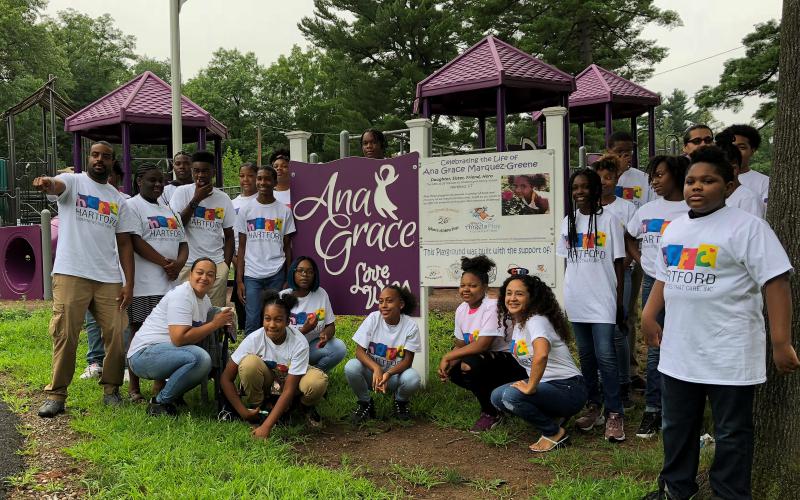
Members of the Greater Hartford Youth Leadership Academy take a photo with Nelba Marquez-Greene, kneeling at right, before boarding a bus headed to a rally in Newtown, Conn. Marquez-Greene’s daughter Ana died in the Newtown school shooting. Photo by Vanessa de la Torre for Connecticut Public Radio
Many young people in Hartford, Connecticut feel their communities are misunderstood, and that their voices, especially when it comes to gun violence, aren’t heard. Connecticut Public Radio’s Vanessa de la Torre brings us a story about a youth leadership academy in Hartford, Connecticut that has been studying ways to reduce gun violence. Students have taken their ideas to leaders and politicians, while also working to get the vote out for the midterm elections.
Candidates Across Region Discuss Energy and the Environment
The frightening report released last week by the United Nation’s Intergovernmental Panel on Climate Change shows that climate change has become an even greater, and more immediate threat, than the already dire warnings had predicted. But climate change still doesn’t rise to the top of the list of concerns in the statewide political races across our region. We found that surprising, considering New England residents seem to want their elected officials to do something about it: a poll from the Yale Program on Climate Change Communication shows that roughly 56 percent of Americans want their governor to do more to combat climate change, and that number’s a bit higher in coastal states like Maine, Massachusetts, Rhode Island and Connecticut. So, how are candidates talking about climate change? And how are voters responding?
NHPR’s Annie Ropeik and WBUR’s Bruce Gellerman join us to discuss their state’s gubernatorial races, what governors can do to combat climate change, and the role of journalists in discussing these issues with politicians.
For more information, you can listen to reporting by Bruce Gellerman about where candidates for governor in Massachusetts stand on environmental issues. Plus, Maine Public Radio’s Fred Bever explores how Maine’s gubernatorial candidates feel about the plan to bring hydropower from Canada to Massachusetts through the state of Maine.
We also recommend listening to a recent episode of VPR’s Vermont Edition, where host Jane Lindholm discusses the IPCC report and the role Vermont can play in curbing climate change.
Farmers in Canada Fear Trade Pact’s Effect on Dairy Industry
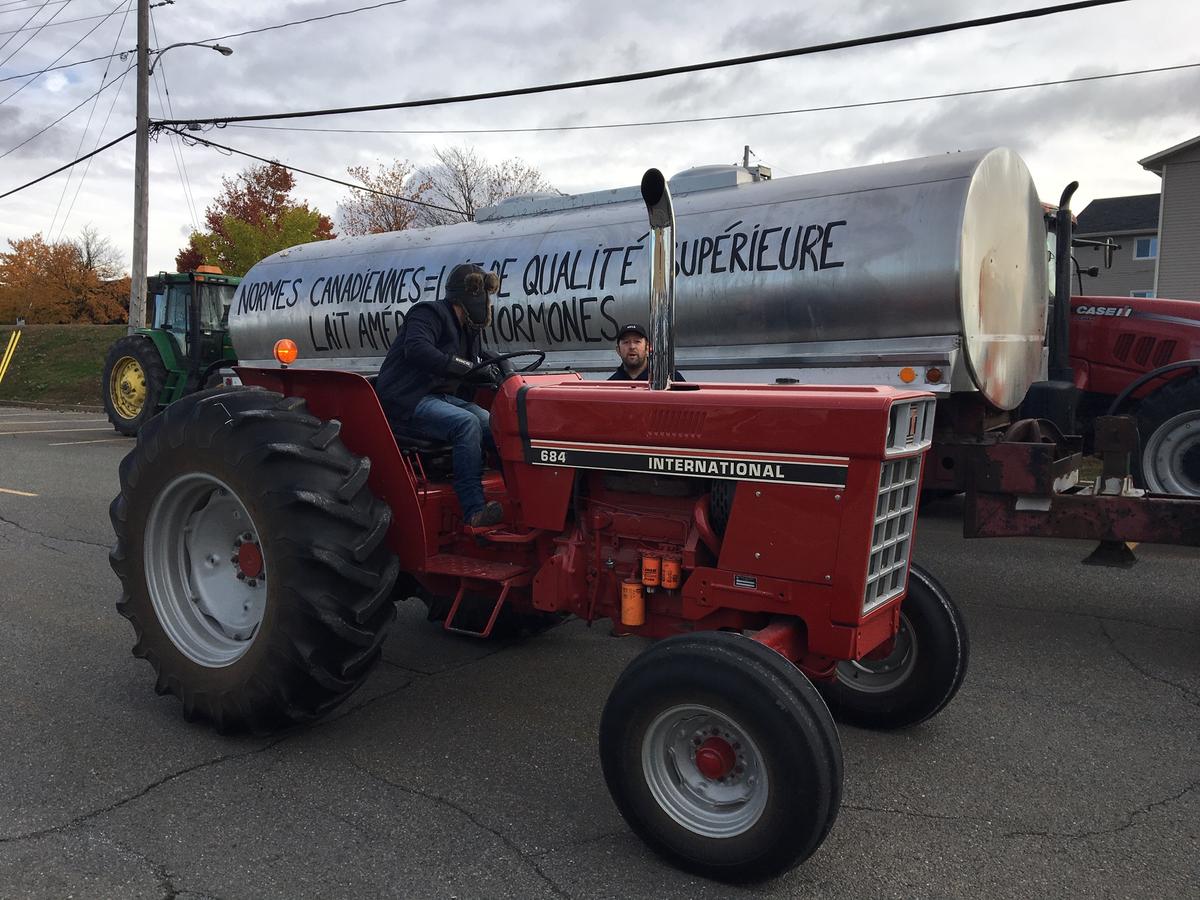
Farmers led a tractor parade down the streets of Granby, Quebec to protest the new trade deal. Photo by John Dillon for VPR
The U.S. dairy industry has welcomed a new trade pact between the U.S., Canada and Mexico because it will open up the traditionally protectionist Canadian market to more U.S. dairy products. But as VPR’s John Dillon reports, farmers north of the border fear the new trade agreement is the beginning of the end of a system that has kept many of them thriving while their U.S. counterparts are increasingly going bankrupt.
For more information on how the dairy industries in the U.S. and Canada have differed in the past, we recommend listening to this piece from VPR’s John Dillon, “Vermont Farmers Look North of the Border for Solution to Dairy Crisis.”
Researchers Work to Build a Better Life Jacket
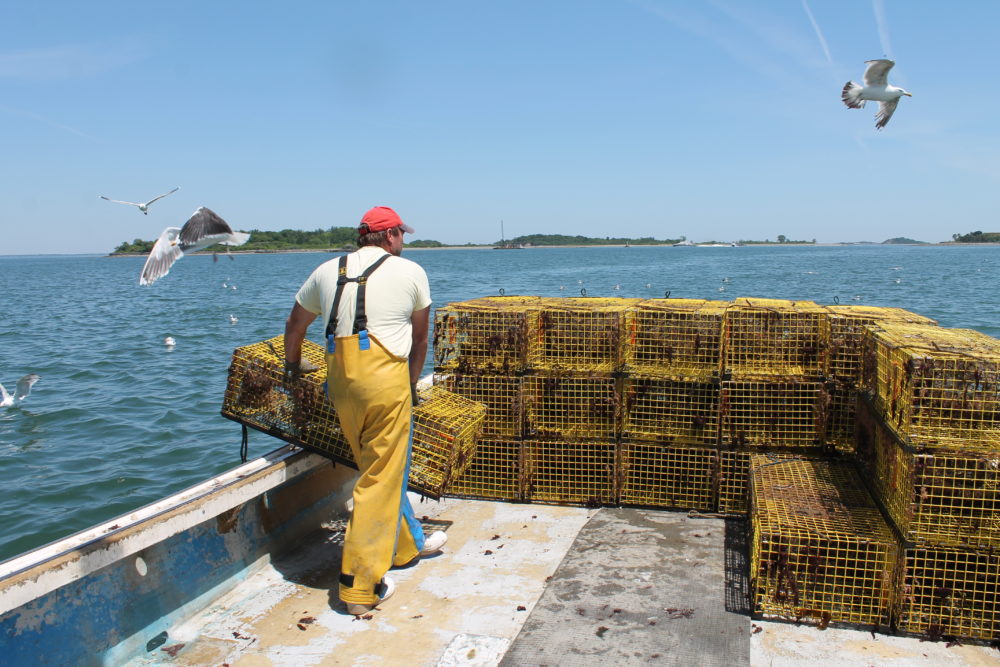
Sternman Frank Lenardis hauls lobster traps to the back of the boat, as part of what lobsterman Steve Holler refers to as “a dance between me and him.” Photo by Hannah Chanatry for WBUR
Commercial fishermen in New England are required to have life jackets on their boats, but they’re rarely, if ever, worn. That’s a dangerous practice for lobstermen. In Massachusetts, falls overboard are the leading cause of death while on the job. Now a research team is trying to change that outcome by changing the life jackets, not the fishermen. WBUR’s Hannah Chanatry reports.
Maine Entrepreneur Grows Elver Business

Sam Richman, owner-chef of Sammy’s Deluxe restaurant in Rockland, with some full-grown American Unagi. He says his patrons tend to prefer it smoked, European style, rather than as Japanese sushi. Photo by Keith Shortall for Maine Public
Maine is the only state with a significant fishery for transparent “glass eels,” otherwise known as elvers. They can fetch thousands of dollars a pound when shipped to Japan, China, and other Asian countries, where they are grown to market size. Now, one Maine entrepreneur wants to add the value herself, growing eels to full-size here, a first for the U.S. As part of his series, “Aquaculture’s Next Wave,” Maine Public Radio’s Fred Bever reports that the startup, American Unagi, is showing early signs of success.
Seaweed Grows in the Gulf of Maine
Another growing industry in Maine is seaweed. We spoke with Susan Hand Shetterly about this industry, she is the author of the new book, Seaweed Chronicles: A World at the Water’s Edge.
She told us about the health benefits of eating seaweed, how seaweed helps to keep water clean, and how entrepreneurs working in the growing seaweed business are hoping to change the fate of fisheries in Maine.
Photo at the top of the page: A Glasswing International staff member walks through town with a young boy who lives in Las Palmas. Photo by Jesse Costa for WBUR
About NEXT
NEXT is produced at Connecticut Public Radio
Host: John Dankosky
Producer: Lily Tyson
Digital Producer: Carlos Mejia
Executive Producer: Catie Talarski
Contributors to this episode: Shannon Dooling, Vanessa de la Torre, Annie Ropeik, Bruce Gellerman, John Dillon, Hannah Chanatry, Fred Bever
Music: Todd Merrell, “New England” by Goodnight Blue Moon, “Wallowa Lake Monster” by Sufjan Stevens, “Drew Barrymore” by SZA, “Marrow” by Ani DiFranco
Stream every episode of NEXT.
We appreciate your feedback! Send critiques, suggestions, questions, and ideas to next@wnpr.org. Follow us on Facebook and Twitter.
Help us spread the word! If you like what you hear, rate and review us on iTunes.


